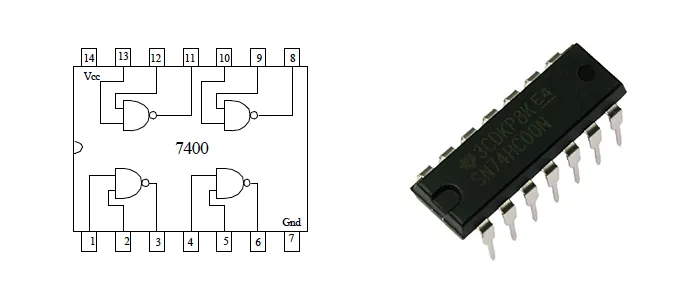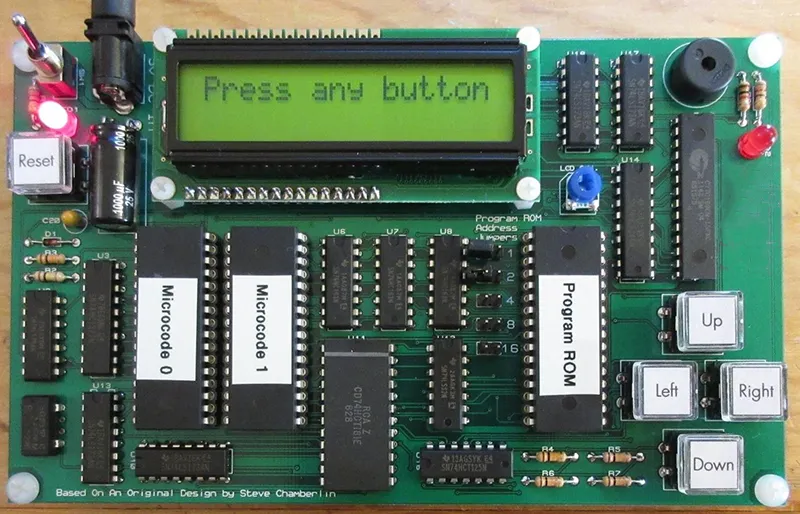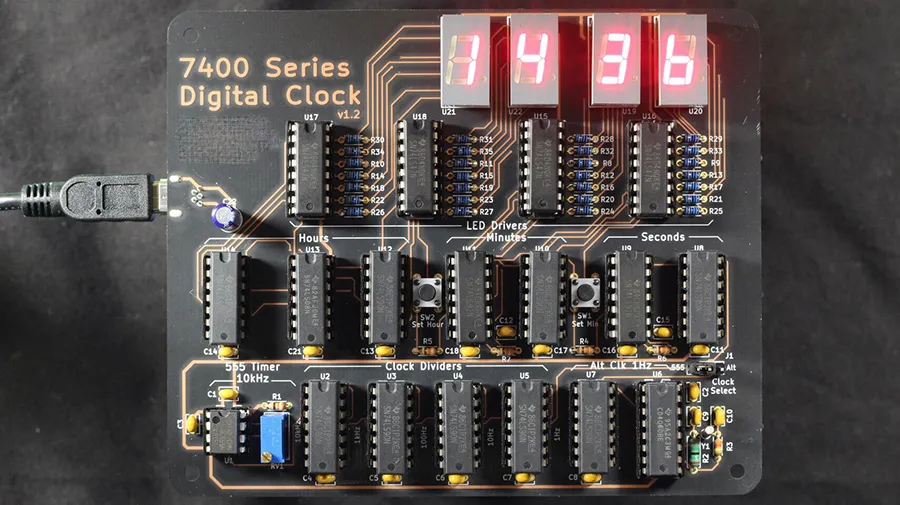The world of electronics is vast and ever-evolving, with innovations that continually push the boundaries of what we can achieve.
Among the myriad of components that form the backbone of modern electronic devices, 74 series logic chips hold a significant place. These chips, also known as 7400 series ICs, 7400 series logic chips, and 7400 logic chips, have been instrumental in shaping the landscape of digital electronics since their inception in the 1960s.
This blog will delve into the history, types, applications, and ongoing relevance of 74 series logic chips.
A Brief History of 74 Series Logic Chips

The 74 series logic chips were first introduced by Texas Instruments in 1964. These chips were developed as a family of transistor-transistor logic (TTL) integrated circuits. Their introduction marked a significant milestone in the field of digital electronics, providing engineers with a versatile and reliable set of components for designing a wide range of digital systems.
Initially, the 7400 series included only a few basic logic gates, but the family quickly expanded to include hundreds of different functions, ranging from simple logic gates to complex arithmetic operations. The widespread adoption of these chips was driven by their robustness, consistency, and ease of use, making them a staple in digital circuit design for decades.
Understanding 74 Series Logic Chips
The 74 series logic chips encompass a broad range of digital logic functions. Here are some of the key types and their functions:
Basic Logic Gates: The series includes standard logic gates such as AND, OR, NOT, NAND, NOR, XOR, and XNOR. These gates are the building blocks of digital circuits, enabling basic logical operations.
Flip-Flops: These are bistable devices that can store one bit of data. They are fundamental in creating memory elements and sequential logic circuits. Common types include D flip-flops, JK flip-flops, and T flip-flops.
Counters and Registers: These chips are used for counting and data storage purposes. Counters can be used in applications like digital clocks and frequency dividers, while registers are essential for storing data in microprocessors.
Multiplexers and Demultiplexers: Multiplexers (MUX) are used to select one of several input signals and forward it to a single output line. Demultiplexers (DEMUX) do the reverse, taking a single input signal and routing it to one of several output lines.
Decoders and Encoders: Decoders convert binary data from n input lines to a maximum of 2^n unique output lines. Encoders perform the reverse operation, converting 2^n input lines to n output lines.
Arithmetic Logic Units (ALUs): These chips perform arithmetic and logical operations on binary data, crucial in the operation of microprocessors and other digital systems.
Key Features and Benefits of 74 Series Logic Chips
The popularity of 74 series logic chips can be attributed to several key features and benefits:
- Standardization: The 74 series logic chips follow a standardized pin configuration and functional layout, which simplifies the design process and enhances compatibility across different projects.
- Versatility: With a wide range of functions available, these chips can be used in various applications, from simple logic circuits to complex digital systems.
- Reliability: 74 series logic chips are known for their robustness and consistent performance, making them a reliable choice for engineers.
- Ease of Use: The straightforward design and clear documentation of these chips make them accessible to both novice and experienced engineers.
- Availability: These chips are widely available from multiple manufacturers, ensuring a steady supply for electronic projects and industrial applications.
Applications of 74 Series Logic Chips

The versatility of 74 series logic chips makes them suitable for a wide range of applications across various industries. Here are some notable examples:
Computing and Data Processing: The 74 series logic chips are fundamental in the design of microprocessors, memory units, and other digital circuits essential for computing and data processing.
Consumer Electronics: From televisions to smartphones, these chips are integral in the operation of various consumer electronics, performing essential logic functions and interfacing with other components.
Industrial Automation: In industrial settings, 74 series logic chips are used in programmable logic controllers (PLCs) and other automation equipment, enabling precise control and operation of machinery and processes.
Communication Systems: These chips play a crucial role in communication systems, including networking equipment and telecommunications infrastructure, by facilitating data processing and signal management.
Education and Research: Due to their simplicity and versatility, 74 series logic chips are widely used in educational settings and research projects to teach and explore digital logic design.
The Evolution and Modern Relevance of 74 Series Logic Chips
Despite the advent of more advanced technologies, the 74 series logic chips continue to hold relevance in modern electronics. Their enduring popularity can be attributed to several factors:
Legacy Systems: Many existing systems and infrastructures were built using 74 series logic chips. Maintaining and upgrading these systems often requires the continued use of these chips.
Prototyping and Development: The simplicity and availability of 74 series logic chips make them ideal for prototyping and developing new electronic designs, allowing engineers to test concepts and iterate quickly.
Cost-Effectiveness: For many applications, especially those with limited budgets, 74 series logic chips offer a cost-effective solution without compromising reliability and performance.
Educational Value: These chips remain a cornerstone in the education of new engineers, providing a hands-on way to learn about digital logic design and circuit implementation.
Future Prospects of 74 Series Logic Chips

As we look to the future, the role of 74 series logic chips continues to evolve. Innovations in semiconductor technology may lead to enhanced versions of these chips, offering even greater performance and efficiency.
Furthermore, the integration of 74 series logic chips with modern microcontroller platforms could open up new possibilities for advanced applications in areas such as IoT (Internet of Things), robotics, and AI (Artificial Intelligence).
The rise of DIY electronics and maker culture also bodes well for the continued relevance of 74 series logic chips. Hobbyists and small-scale innovators frequently turn to these chips for their projects due to their affordability and ease of use. Online communities and resources provide extensive support, making learning and experimenting with 74 series logic chips easier than ever.
Conclusion
The 74 series logic chips have undoubtedly left an indelible mark on the field of digital electronics. These versatile and reliable components have enabled countless innovations and advancements from their introduction in the 1960s to their continued use today.
Whether you’re working on a cutting-edge technology project or a simple DIY electronics hobby, understanding and utilizing 74 series logic chips can provide a solid foundation for success. As we look to the future, it’s clear that these chips will continue to play a vital role in the ever-evolving landscape of electronics.
In summary, the 74 series logic chips are not just historical artifacts but living components that continue to drive innovation in electronics. Their standardization, versatility, reliability, and ease of use make them an enduring choice for engineers, educators, and hobbyists alike.
The next time you embark on an electronics project, consider the powerful and dependable 74 series logic chips as your go-to solution.